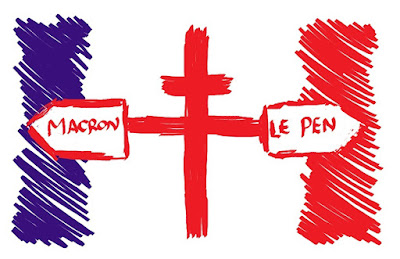As with the exit from the European Union, could Britain exit other major international organisations, in particular NATO?
Exiting NATO is considered unacceptable within British politics, and even the ex-leader of the Labour Party Jeremy Corbyn seems to have been pressured to abandon that stance before he had any chance at becoming Prime Minister, which ultimately failed anyway. Most Brits support the Alliance.
The exit process
Discussion about a country leaving NATO has mostly focused on Turkey lately, due to its policy clashes with multiple member states including Greece, France and even the US. It is noted that while the organisation has everything in place for letting countries in, there is no process for expulsion.
The process for exiting NATO voluntarily by a member state seems simple enough. It requires diplomatic correspondence with the United States, followed by a one year transition period. If the UK wanted to leave, it is an easy process.
It should be noted that the organisation's founding document (Article XIII) treats the Alliance as temporary, suggesting a 20-year duration, placing no importance in maintaining it. The Alliance, however, is now maintained by a fandom of unilateralists who see it as a marvellous superhero organisation battling against evil, evidently disappointed with the United Nations, the constraints of international law, or any grasp of reality.
The Leave Movement
The virtues of NATO for security were cited by Leave campaigners during the campaign for Brexit, as a reason the EU wasn't needed for keeping the country safe. Considering this, they aren't likely to take on the cause of exiting NATO now that they are done with the EU. In fact, Leave campaigners claimed they were helping NATO by undermining the EU, seen as a rival institution in European defence.
The Eurosceptic movement was originally not taken very seriously by opponents in the UK, but support grew, and it drew very prominent politicians who were able to attract even more interest in it. Those who want to exit NATO are not taken seriously now, but someone similar to Nigel Farage might hypothetically be able to pull it off. We know of Farage's alignment with Donald Trump, who is a sceptic of NATO, but Farage himself is a certainly a NATO fan.
However, the question remains: why exit NATO? There were numerous complaints about the EU negatively affecting people in Britain, that could be spun into a narrative of the country being subverted and undermined by a foreign yoke. This helped to stimulate Brexit. However, there is no such tale be told about NATO. We maintain a nuclear arsenal as a country and are a major military player and ally of the US. Simply exiting NATO would not affect those stances or make us less of a target for a hypothetical aggressor, and in fact may make us more vulnerable, because NATO membership could be helping to deter some forms of attack.
No point
The main thing to consider about another Brexit, this time from NATO, is that there is no point. There are significant perks of membership, no consequences or expulsion process for failing to meet one's commitments, and less spending on defence is necessary when compared to being an independent military power.
A country should remain within NATO even if it regards the alliance with scorn and has no intentions of coming to anyone's aid. Everything is on offer that could encourage you to stay, even if you don't want to.
The core of NATO
In the case of Britain, no political conversation needs to be had about NATO. The very nucleus of NATO is the coalition, or Special Relationship, of our country with America. That's really how NATO started.
One could withdraw from NATO as a snub to Atlanticists and pro-American warmongers within British politics, but why? They would not be going anywhere. Their lifelong cradling and nursing of Americans and love of their culture would not be forgotten by these idolaters, if they simply walk out of the NATO door. If anything, we would see even more aggressive stances taken in support of American foreign policy, and without a formal framework to create some restraint, by those who worship the Americans.
The only way to break it
The British-American alliance exists independently of NATO and is reinforced by extensive cooperation between both countries' armed forces. In addition, the cultural and linguistic connection is essential to the Special Relationship. The foreign policy thought and practice of the two countries are entirely intertwined and inseparable, with British diplomats and jurists more devoted to justifying American actions than their own.
To break these things would be a multigenerational process, but it could be inevitable. An increasing and potentially politically decisive Muslim minority in Britain is likely to favour disengagement from aggressive American foreign policy, considering the catastrophe it brought their fellow Muslims.
Absent the long way described above, there are only two ways the British-American coalition could be eliminated quickly: (1) a major historic dispute or incident making the British realise the Americans are traitorous, offensive and unworthy as allies and resulting in numerous condemnations being uttered by British politicians, and (2) the final depreciation and end of the British Armed Forces (possibly aided by Scottish independence or further breakup of the UK) at which point the Americans themselves no longer call on us to aid them or find us to be worthy allies.
How to be an anti-NATO Brit
NATO is inessential and possibly results in a confused course, steering British military power away from the country's national interests and into unnecessary conflicts started by Americans. It diminishes Britain's interest in the welfare of the Commonwealth of Nations, where we have actual moral debts, cultural ties, and civilisational commitments. There are valid reasons to abandon the Atlanticist obsession.
As valid as the above criticism of NATO may be, it is never a good idea to just swim against the tide of popular opinion, no matter how dull or foolish such opinion may seem. One must instead only give lacklustre support to NATO, and show a lack of enthusiasm towards it.
The best role one can take as an opponent of what NATO represents in the UK, whether simply trying to convince people or seeking political office, would be to mention NATO as a good and stable thing when talking of foreign policy. Mentioning continued NATO commitments is an effective way of throwing a bone to the Atlanticists without actually doing anything.
Membership of NATO can be cited when trying to cut defence spending, as well, since we can point to collective defence and the many buffer states between us and any adversary. One might consider asking the Americans to reform NATO. We could request to reduce the 2% of GDP required to go to defence, asking instead to spend 1% due our lack of proximity to an adversary, and see how the US deals with that. Or we could just reduce spending anyway, since the organisation has no expulsion process or sanctions mechanism to punish the UK with. The UK has no adjacent adversary and is surrounded by allies or neutral parties, making internal policing far more important than force projection abroad.









